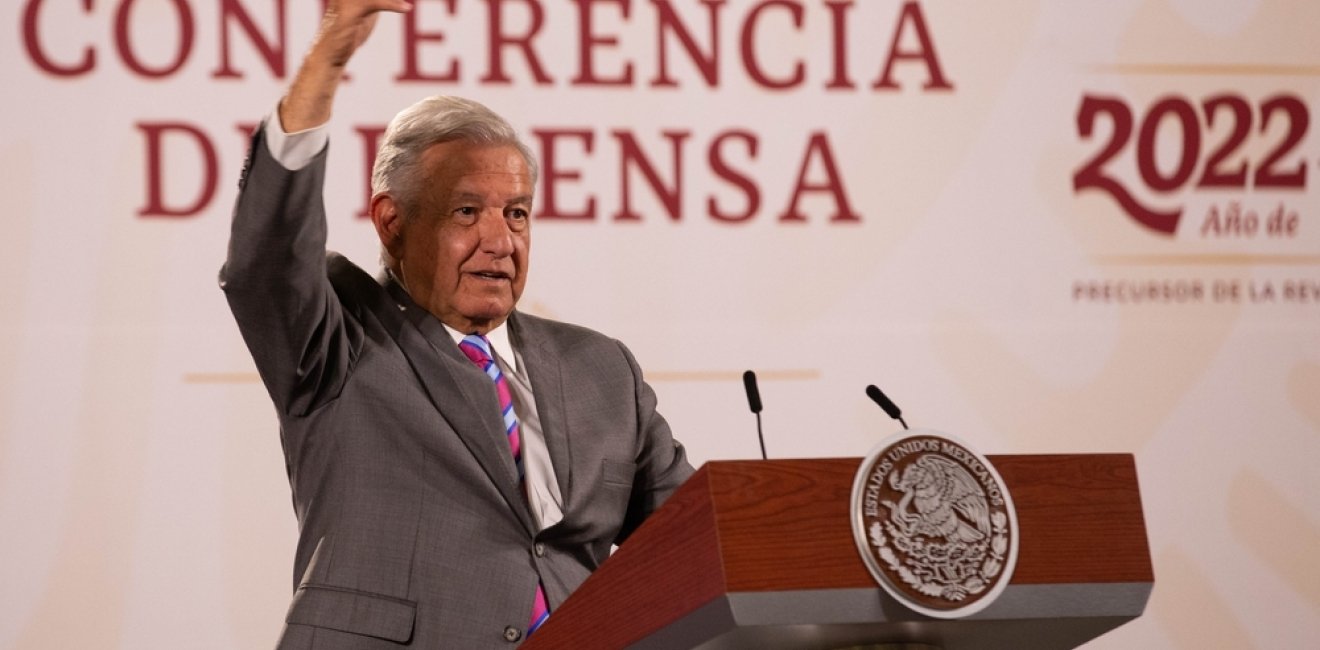The survival of Mexico as we know it is at stake in this election, with two radically different options. On one hand, the traditional parties (PAN, PRI, PRD) aim to preserve the 1917 Constitution and the spirit of the democratic transition (1977-1996) to protect their legacy. On the other hand, Morena and its allies (PT, PVEM, MC) propose a new political order still without a defined outline but with AMLO and his group at the center. How different Morena’s new order will look depends on the electoral support they get. In the more extreme scenario, it could lead the country down the path of a constitutional convention, establishing the foundation for a stable competitive authoritarian regime, in which “formal democratic institutions are widely viewed as the principal means of obtaining and exercising political authority. However, incumbents violate those rules so often and to such an extent that the regime fails to meet conventional minimum standards for democracy.”
Almost six years ago, I voiced concerns regarding the future of Mexico's electoral institutional framework, anticipating potential efforts by AMLO to erode the autonomy of the National Electoral Institute (INE). I explicitly stated, “Now that AMLO has fulfilled his long-held ambition of becoming president, the real question is what will happen to the current electoral institutional framework?” and emphasized that “he might attempt to undermine the autonomy of the INE, openly or behind the scenes, to tilt the electoral field in favor of his party.” Unfortunately, these fears materialized in April 2022 when AMLO officially introduced a bill to replace the INE with a new institution under his orbit of influence. This could have enormous repercussions: the autonomy of the INE constitutes the cornerstone of Mexican democracy. It is essential to recall that Mexico's democratic transition spans almost two decades and is characterized by a continuous cycle of “constant iterations of electoral fraud, opposition protest, and electoral reform.” Throughout this extended process, the primary contention between the hegemonic PRI and the opposition parties revolved around the autonomy of the electoral authorities concerning the executive branch, gradually granted through meaningful political and electoral reforms in the years 1977, 1986, 1989–1990, 1993, 1994, and 1996.
It took nearly two decades, spanning from 1977 to 1996, to build the democratic scaffold that underpins our democracy. This scaffold presided over four presidential elections, including Morena’s triumph in 2018, and was skillfully leveraged by AMLO to ascend to the presidency. However, its significance appears inconsequential to him. Over the past five years, we have observed a series of initiatives from his government aimed at vilifying and sidelining the INE, which serves as the guarantor of free and fair elections in Mexico. In essence, these actions threaten the foundations of democratic rule.
What I failed to foresee was the audacity displayed by AMLO. Much like many others, I was deceived by his softened image during the electoral season. I had anticipated that the endeavor to control the INE would involve negotiations in Congress and efforts to win over the left-leaning factions of the PRI. In 2018, I remarked: “Morena controls the Congress, and President AMLO will have no trouble unifying around him the parties on the left along with left-leaning sectors of the PRI. A coalition of that breadth amounts to two-thirds of Congress, the necessary threshold to appoint INE board members.” However, the PRI eventually realized that supporting this option was, in essence, political suicide. Consequently, they chose to form an alliance with the PAN and the PRD, not merely to secure electoral victories but out of a pure survival instinct.
My initial naivety was swiftly dispelled, though, as I recognized that AMLO is in fact hoping to exercise power and exert influence without holding the presidency. The evidence by 2023 is unmistakable: he is strategically positioning his allies to maintain control and decision-making authority over Morena after he exits the presidency. This became glaringly evident a few weeks ago when he appointed his favorites and close associates as gubernatorial candidates in key states of Mexico. The clarity of this intention was particularly striking when he selected a different candidate for the mayoralty of Mexico City, one who differed from the individual suggested by his hand-picked successor, Claudia Sheinbaum. The message resounded clearly to all who cared to listen: this is my party, and I am its leader.
The last president who pursued a similar path was Carlos Salinas (1988-1994), and his plan tragically unraveled when his political protégé and hand-picked successor, Luis Donaldo Colosio, was assassinated in Tijuana. Before that, we must rewind to the 1930s, when former president Plutarco Elías Calles (1924-1928) exercised control over three presidents between 1928 and 1934. This historical period is known as the Maximato, named after Elías Calles's moniker as el Jefe Máximo. Unfortunately for Calles, it didn't end well. In 1934, Lázaro Cárdenas assumed the presidency, leading to conflicts between them. Eventually, Cardenas forcibly sent Calles on a one-ticket plane to San Diego, California, in exile. The lesson here is clear: never underestimate the capacity of politicians to turn against those who supported them.
Uncertainties loom on the horizon for Mexico's future. Personally, I believe that the upcoming election will be a closely contested one. Regardless of the outcome, it serves as a stark reminder that in politics, nothing is set in stone. The continuation of the democratic regime painstakingly built at the close of the twentieth century by a generation of Mexicans is not guaranteed. In fact, today, it's not even assured that the Mexican State will survive in the manner we've known it for the first two decades of the twenty-first century. Throughout Mexico's tumultuous history, political upheavals have often left behind a trail of destruction. As we approach the precipice, we cannot dismiss the possibility of a resurgence in political violence to a magnitude not witnessed in over a century. The stakes are high, making this election of unparalleled importance, even extending beyond Mexico's borders to impact the United States.
Author


Mexico Institute
The Mexico Institute seeks to improve understanding, communication, and cooperation between Mexico and the United States by promoting original research, encouraging public discussion, and proposing policy options for enhancing the bilateral relationship. A binational Advisory Board, chaired by Luis Téllez and Earl Anthony Wayne, oversees the work of the Mexico Institute. Read more

Explore More
Browse Insights & Analysis
Greenland’s New Governing Coalition Signals Consensus

The Future of France's Far-Right Party

Ukrainian Issue in Polish Elections



